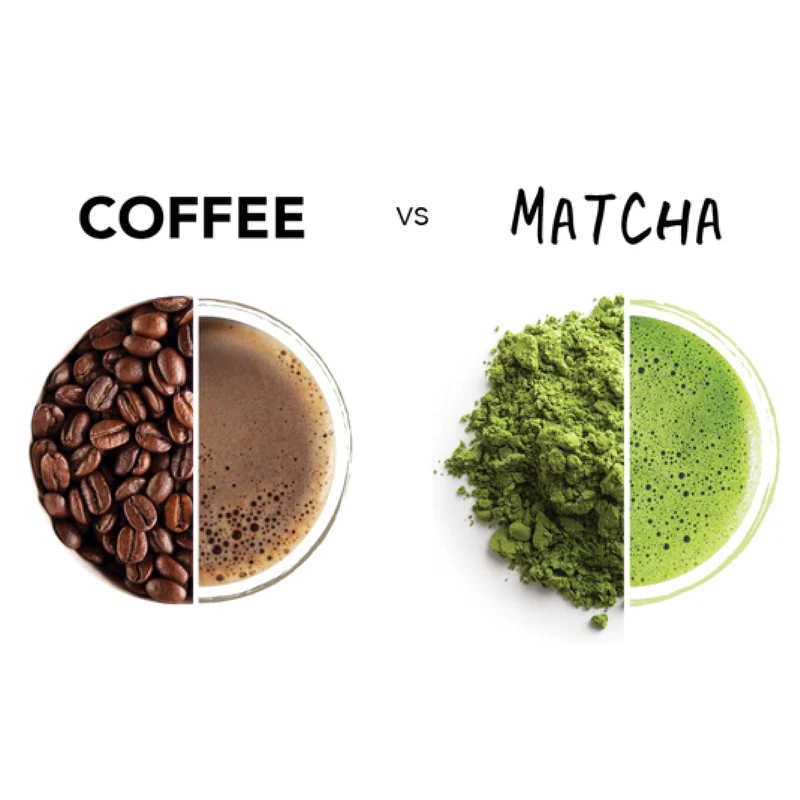
Matcha vs Coffee: Which is the Healthier Energy Boost?
In this day and age, remaining energized is not negotiable. For the majority of individuals, the decision typically boils down to two favorites: matcha and coffee. Both are full of caffeine, both provide you with that much-needed energy, and both enjoy dedicated followers who swear by their advantages. However, when we talk about health, concentration, and sustained energy, which one actually stands tall? Let's get into it.
The Caffeine Factor
The first thing we all seek in a breakfast beverage is caffeine. Coffee provides it in spades. A typical cup of coffee holds approximately 95 milligrams of caffeine, providing an immediate and obvious boost of awareness. This "wake-up kick" is precisely why coffee is enjoyed globally, but it comes with drawbacks such as shakiness, accelerated heart rate, or the horrible mid-afternoon crash.
Matcha, however, is milder. A bowl of matcha contains 60 to 70 milligrams caffeine, less than coffee but sufficient to make you alert. The difference, however, lies in how your body digests it. Matcha's caffeine is released gradually, due to its unique blend with other substances, allowing you a consistent flow of energy without the rollercoaster experience that coffee tends to induce.
Matcha’s Secret Weapon: L-Theanine
What really makes matcha stand out is L-theanine, an amino acid that doesn't appear in many other caffeinated beverages. L-theanine induces relaxation and acts to counter the jittery side effects of caffeine. Rather than a wired feeling of nervous energy, matcha provides what most people recognize as a condition of "calm alertness." This implies you remain concentrated and efficient without ever feeling wired. For students, businesspeople, or anyone who requires extended periods of concentration, matcha provides an advantage coffee just isn't able to.
Antioxidant Giants
When it comes to health advantages, both beverages are heavy hitters.
Coffee contains a wealth of antioxidants and has been associated with lower risks of type 2 diabetes, liver disease, and even some neurological diseases.
Matcha, though, raises antioxidants to a new level. Since matcha is produced by finely grinding entire green tea leaves instead of dried leaves, you ingest the entire leaf instead of just an infusion. This results in it being very high in catechins, particularly EGCG (epigallocatechin gallate), a substance lauded for its anti-inflammatory, metabolism-enhancing, and heart-protecting qualities. Indeed, matcha has been reported to contain as much as 137 times the antioxidants found in normal green tea.
Stress, Sleep, and Lifestyle Fit
A further area of distinction is stress and sleep. Coffee, despite its energizing properties, may elevate cortisol levels in individuals and interfere with sleep when consumed later in the day. Matcha's L-theanine, in contrast, has a calming effect that can alleviate stress and may even result in improved sleep quality.
Taste and lifestyle are also involved. Coffee's rich, bitter flavor is infinitely adaptable, with lattes, cappuccinos, and cold brews ruling café culture. Matcha's grassy, slightly sweet flavor is spreading globally, not only in lattes but also in smoothies, desserts, and even skin care products.
The Verdict
So, which is the healthier energy fix? If you require an instant burst of wakefulness, coffee works. But if you aim for sustained energy, improved concentration, and fewer consequences, matcha is the wiser, healthier option. Maybe the best plan is balance: have your coffee when you crave intensity, but have matcha as your constant friend for maintained, present energy.



You must be logged in to post a comment.